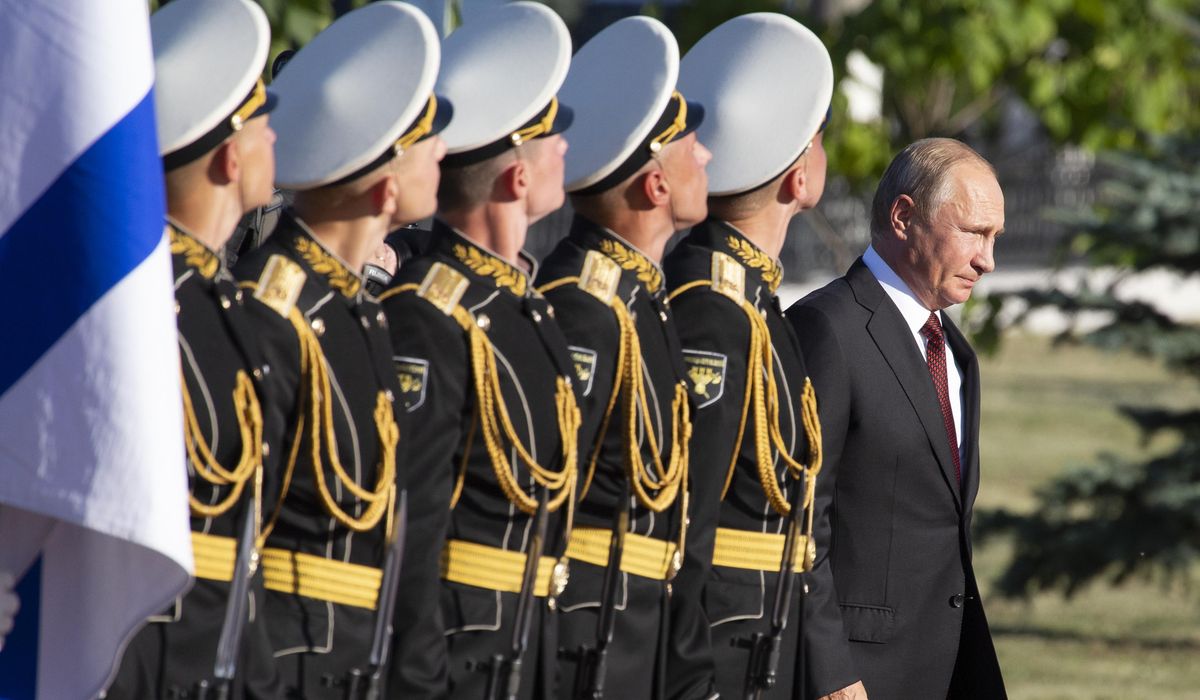


Don’t miss the full story from our staff writers, whose reportage is the basis of this article.
Russian President Vladimir Putin has recently emphasized historical examples of Russia’s support for the United States during the American Revolution and Civil War, framing these events as evidence of Russia’s contribution to American statehood. Mr. Putin’s comments appear strategically timed amid the ongoing Russia-Ukraine conflict, suggesting that the Trump administration should approach Moscow with gratitude rather than antagonism when seeking to end the war.
During the American Revolution, Russia provided indirect but significant support to the American cause. Empress Catherine II refused British requests to send Russian troops to fight alongside British forces, forcing Britain to rely on German Hessian soldiers instead. These Hessian troops proved less effective and suffered major defeats, including their capture during the Continental Army’s victory at Trenton in December 1776. Additionally, Russia implemented and enforced the “First League of Armed Neutrality,” a maritime policy that prevented British naval dominance and allowed neutral nations to continue shipping goods across the seas. This policy ensured that naval supplies, ammunition, and artillery flowed from Europe to France, ultimately helping equip French ships that fought alongside American forces at crucial battles like Yorktown.
During the Civil War, Russian Emperor Alexander II sent naval fleets to New York and San Francisco, with ships reportedly prepared to fight the British Navy if Britain decided to support the Confederacy militarily and economically. According to historical sources, this Russian-American partnership helped prevent European intervention in the Civil War.
Historians acknowledge that while Russia did support the United States during both conflicts, President Putin’s characterization oversimplifies the historical record. Alexander Burns, a history professor and expert on 18th-century military history, notes that Russia was “on our side” in both wars but “not as uniformed combatants.” He draws an ironic parallel to current events, comparing Russia’s historical aid to America with the aid the United States currently provides to Ukraine.
Mr. Putin’s historical references follow a familiar Russian rhetorical strategy, similar to how Moscow has long emphasized its fight against Nazi Germany when dealing with European nations. The Russian leader’s comments reflect his belief that major Western powers owe Russia gratitude for past support.
This historical narrative serves Mr. Putin’s current foreign policy objectives, as he attempts to position Russia as deserving of American appreciation and cooperation rather than confrontation. However, President Trump has publicly dismissed Mr. Putin’s arguments, and peace negotiations regarding Ukraine have made limited progress despite multiple rounds of talks between Russian and Ukrainian delegations.
Don’t miss the full story from our staff writers, whose reportage is the basis of this article.
This article is written with the assistance of generative artificial intelligence based solely on Washington Times original reporting and wire services. For more information, please read our AI policy or contact Ann Wog, Managing Editor for Digital, at awog@washingtontimes.com
The Washington Times AI Ethics Newsroom Committee can be reached at aispotlight@washingtontimes.com.
